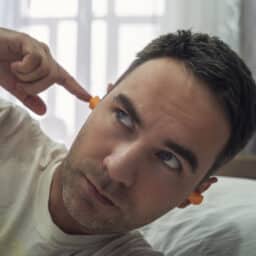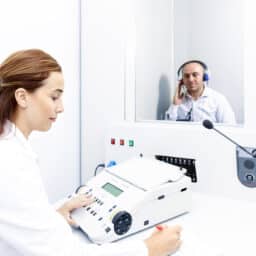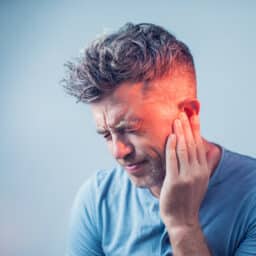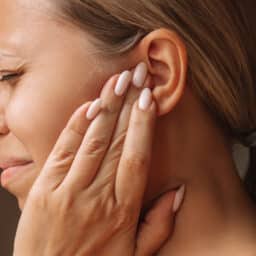Understanding Noise Pollution and Its Impact on Hearing Health

In the hustle and bustle of modern life, we often find ourselves surrounded by constant noise from the rumble of traffic to the hum of household appliances. While we may not always pay it much attention, the cumulative effect of these noises can profoundly impact our hearing health. This constant noise is known as noise…
What To Know About High-Frequency Hearing Loss in Children

High-frequency hearing loss refers to challenges in discerning higher-pitched tones and often stems from damage to the inner ear’s delicate hair cells. This condition is not limited by age, affecting both the young and old. In fact, research indicates that up to 14.2% of children, who had a habit using personal music devices, are found…
Tips for Engaging With Hearing Loss in 2024

Approximately 28.8 million U.S. adults could benefit from hearing aids. However, only 16% of people between 20 and 69 who need hearing aids use them. One of the main reasons those who need hearing aids don’t use them is lack of awareness about hearing loss and the benefits of treatment. By educating ourselves about its…
Omega-3 and Hearing Health: What Is the Connection?

The American Heart Association recommends eating fish high in Omega-3 fatty acids twice a week to help reduce your risk of heart disease and stroke. While the heart-healthy benefits of fatty fish have long since been touted, research suggests Omega-3 fatty acids may also have a positive impact on your hearing. How Are Omega-3 Fatty…
Start Off the New Year by Managing Your Tinnitus

Tinnitus, a condition characterized by a persistent ringing or buzzing noise in the ears, can be more than just an annoyance, it can significantly impact your quality of life. It’s estimated that about 10% of Americans, or around 25 million people, have experienced tinnitus episodes lasting for at least five minutes within the past year….
How Can Earwax Blockages Affect Your Hearing?

Earwax, that sticky, yellow or brown substance in your ears, is produced by your body to trap dirt, slow the growth of bacteria and protect your ears from germs. Although earwax is generally self-regulating, there are instances where it can become blocked. When Does Earwax Blockage Occur? In most cases, earwax makes its way to…
Tips To Avoid Swimmer’s Ear With Hearing Aids

Swimmer’s ear, also known as otitis externa, is a common condition characterized by inflammation, irritation or infection of the outer ear canal. It occurs when water becomes trapped in the ear canal, providing a favorable environment for bacterial growth. Swimmer’s ear can be uncomfortable and may cause symptoms such as a feeling of fullness, discomfort,…
How To Describe and Identify Your Type of Tinnitus

Tinnitus refers to the presence of buzzing, clicking, ringing or hissing noises in the ears. It is generally classified into two main types: Let’s take a closer look at tinnitus severity and type to help you describe it to your provider when seeking symptom management. Tinnitus Severity The severity of tinnitus varies from nonbothersome to…
How Are Hyperacusis and Tinnitus Connected?

Tinnitus is characterized by a ringing, buzzing, clicking or roaring sound in the ears that cannot be heard from the outside. Affecting more than 50 million people in the United States, tinnitus can be infrequent and relatively nonbothersome or persistent and bothersome. Bothersome tinnitus is likely to cause stress, irritability and sleeplessness. Hyperacusis is characterized…
What to Know About Humidity and Hearing Aids

Sitting by the water at Fort Lee Historic Park is the perfect way to spend an autumn day. Although there are many perks to living by the water, high humidity is one aspect to consider when wearing hearing aids. How Do Hearing Aids Work? Approximately 28.8 million U.S. adults could benefit from hearing aids. The…